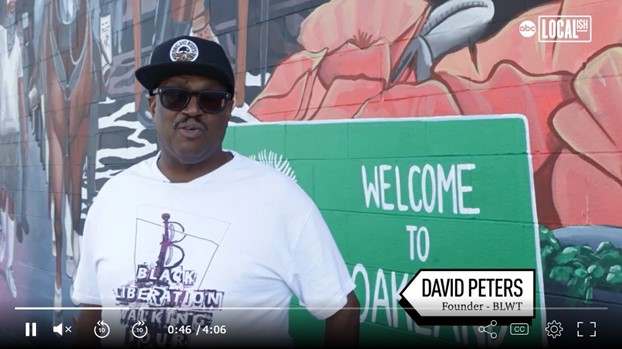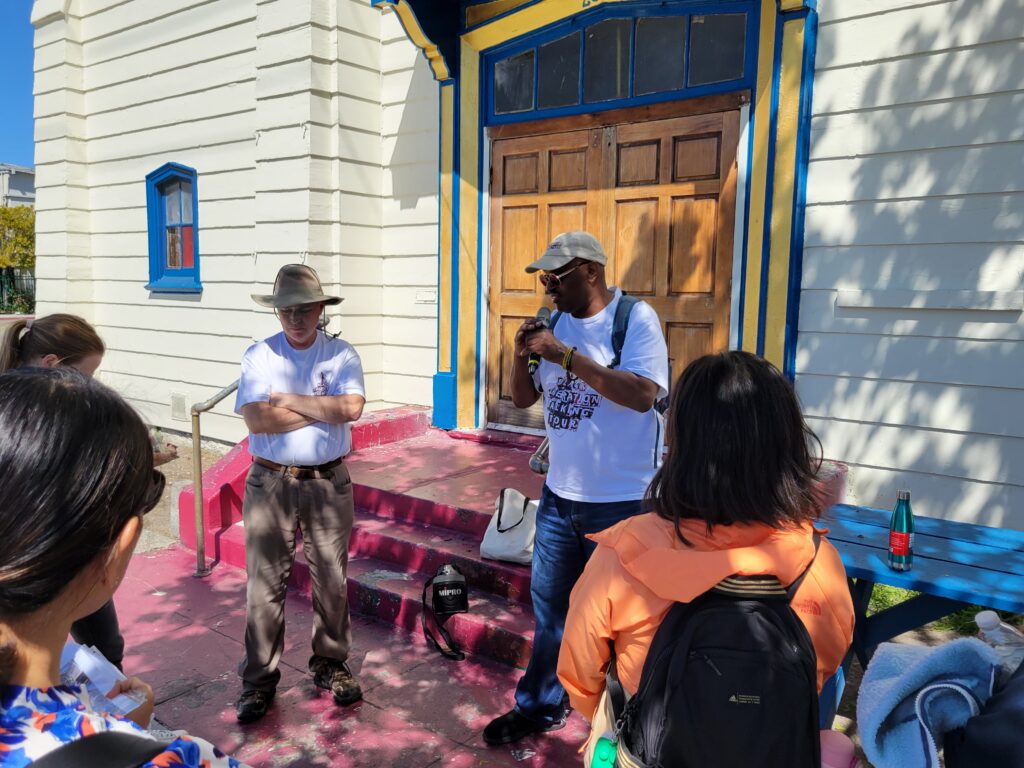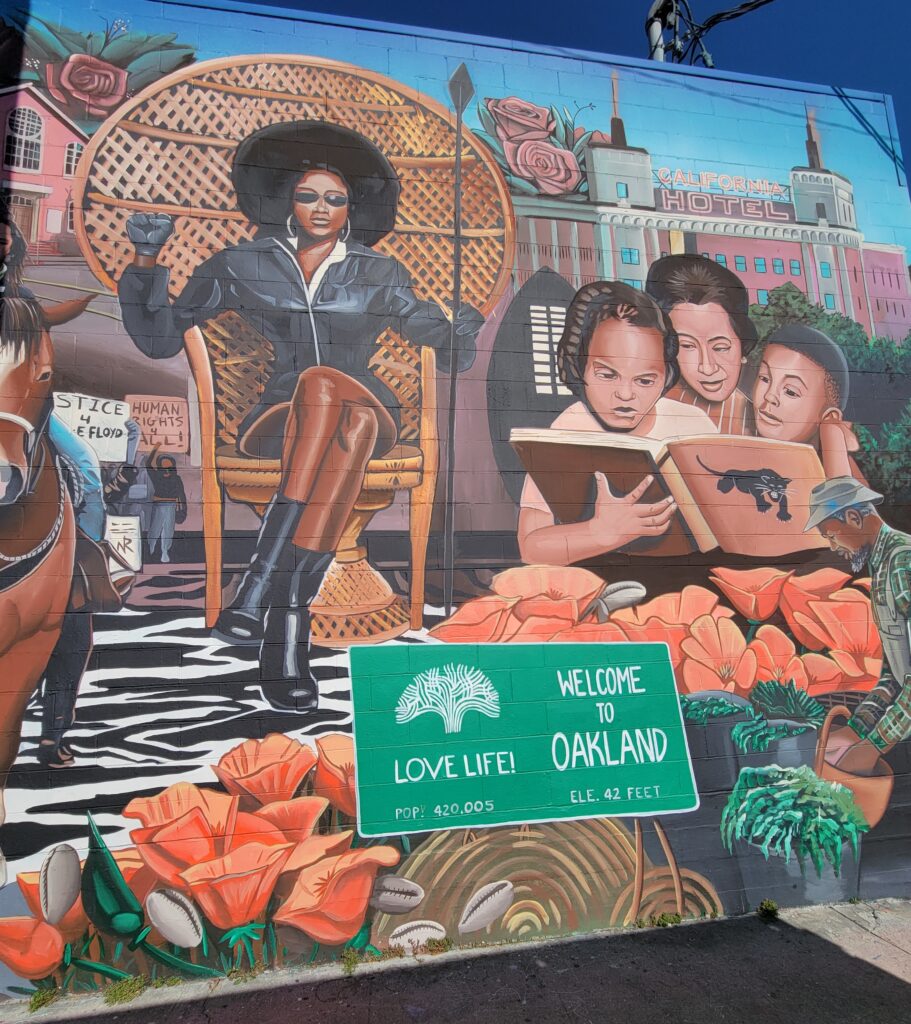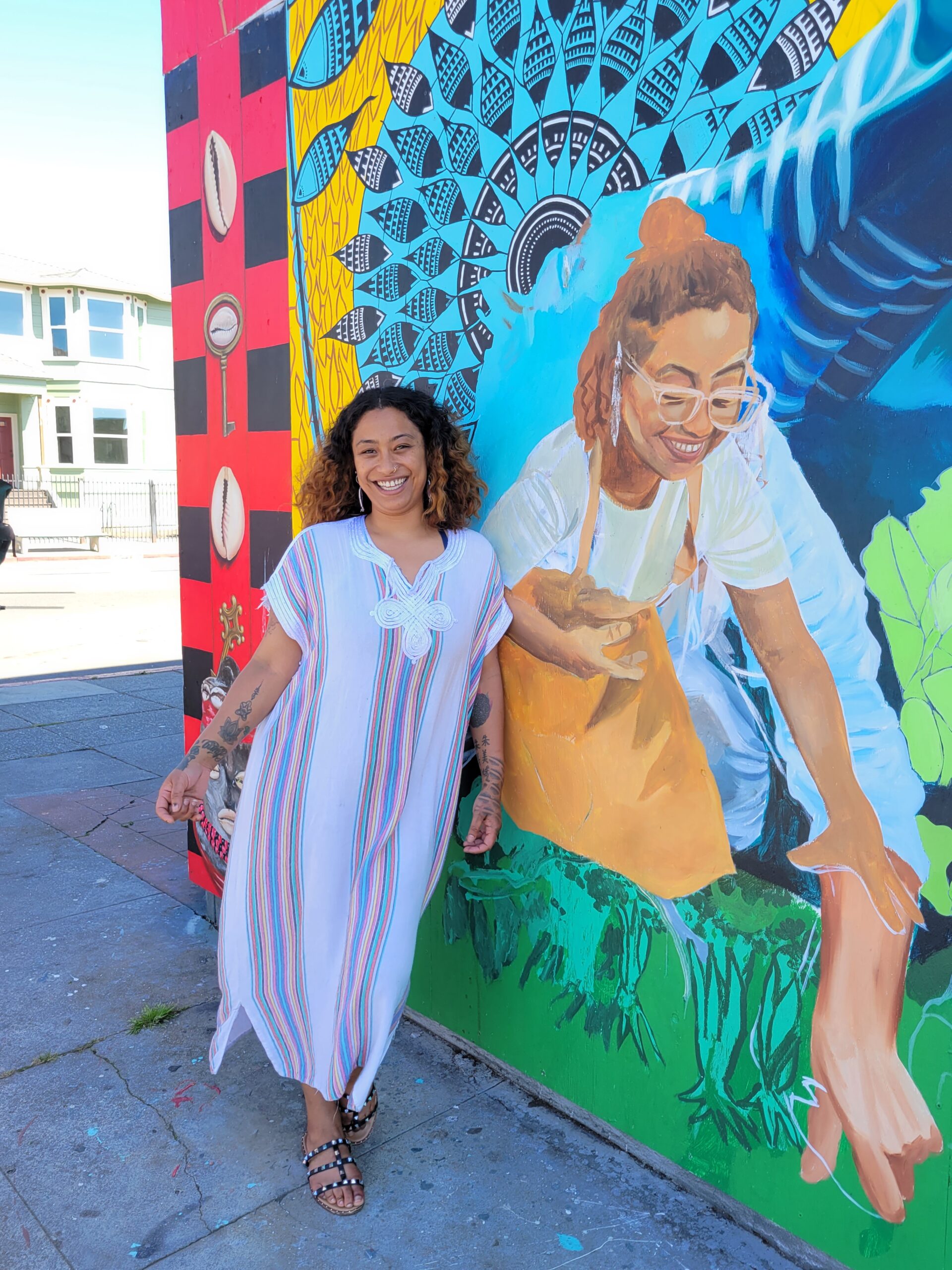The final two hours of our first full day was spent, quite literally, with our “boots on the ground” as we participated in the Black Liberation Walking Tour through Oakland’s Hoover-Foster neighborhood, led by David Peters. The brainchild of Mr. Peters, a third-generation West Oaklander, the walking tour features stops where our group learned about the areas rich Black history through storytelling—partly Mr. Peter’s own family history growing up in the community, partly oral histories recorded and edited by Liam O’Donoghue, host of the podcast East Bay Yesterday.

Our tour began at the steps of the old St. Augustine Episcopal Church, where the Black Panther’s Free Breakfast Program was first organized. Other stops on the tour included the locally popular Flint’s Barbecue (just while we stood in front of the site two separate community members stopped to inquire if it was reopening!) and the home of columnist Delilah Beasley, who was a historian and columnist for the Oakland Tribune back in 1923. During the early 20th century, Ms. Beasley traversed the State of California by herself conducting research for her book, The Negro Trail Blazers of California, published in 1919.

location of the Black Panther’s first Free Breakfast Program.
Mr. Peters shared that the idea behind the tour was a way for folks living in the area to take pride in its history. As we walked the streets and interacted with community members, Mr. Peters described Oakland as “the western-most outpost of the Deep South, up until about 1980” recalling as a kid returning with family to the rural South during the summers.
The tour also features the work of the Bay Area Mural Program, including the impressive mural below, featuring many of the sites along the Walking Tour.

Gene Anderson, fellow lifelong resident of Oakland who accompanied our group, also helped conduct historical research for the walking tour. A particularly poignant stop was near the I-580 freeway—with a multi-tiered overpass maze of exits and onramps. The exhaust and noise pollution were physical distractions as we listened to how the highway’s path was intentionally designed to tear through the Hoover-Foster neighborhood, with the impact of displacing thousands of Black residents when it was constructed in the 1960s. Both the construction project itself and the health risks to those living within such close proximity to the highway is consistent with racial disparities seen all over the U.S.

Within 100 yards of the overpass stands Third Eye Soul Kitchen, started by proprietor Chef Empress Xia Nei. We met Empress as she and colleagues stood chatting in front of her establishment. Her goal is to create space for the community and reconnect folks with ancestral ways of eating. The Kitchen provides fresh produce and healthy offerings as part of a weekly market.
Plagued with crime and police violence during the 1980s and 1990s, Oakland’s reputation suffered. However, the pressure for affordable housing in the Bay Area saw a resurgence of higher-income residents moving back into the area—and with that, the increased cost of housing continues to displace some longtime residents.
As described in this 2021 Oaklandside.org article, “The Black Liberation Walking Tour organizers hope that by documenting the stories of people who have spent generations in the neighborhood, they can help the community resist a type of gentrification that’s been all too common in Oakland. Newcomers arrive and like the sense of history an area has, but don’t invest in preserving it—or respecting the people whose families have been there for generations.”
This walking tour gave our group a lot to think about, as we closed out the first day of our program. For me, it was a wonderful way to ground myself with people and places we want to center as we consider access to and the purpose of Higher Education.
–Melinda Richardson, Managing Director, CSHPE

